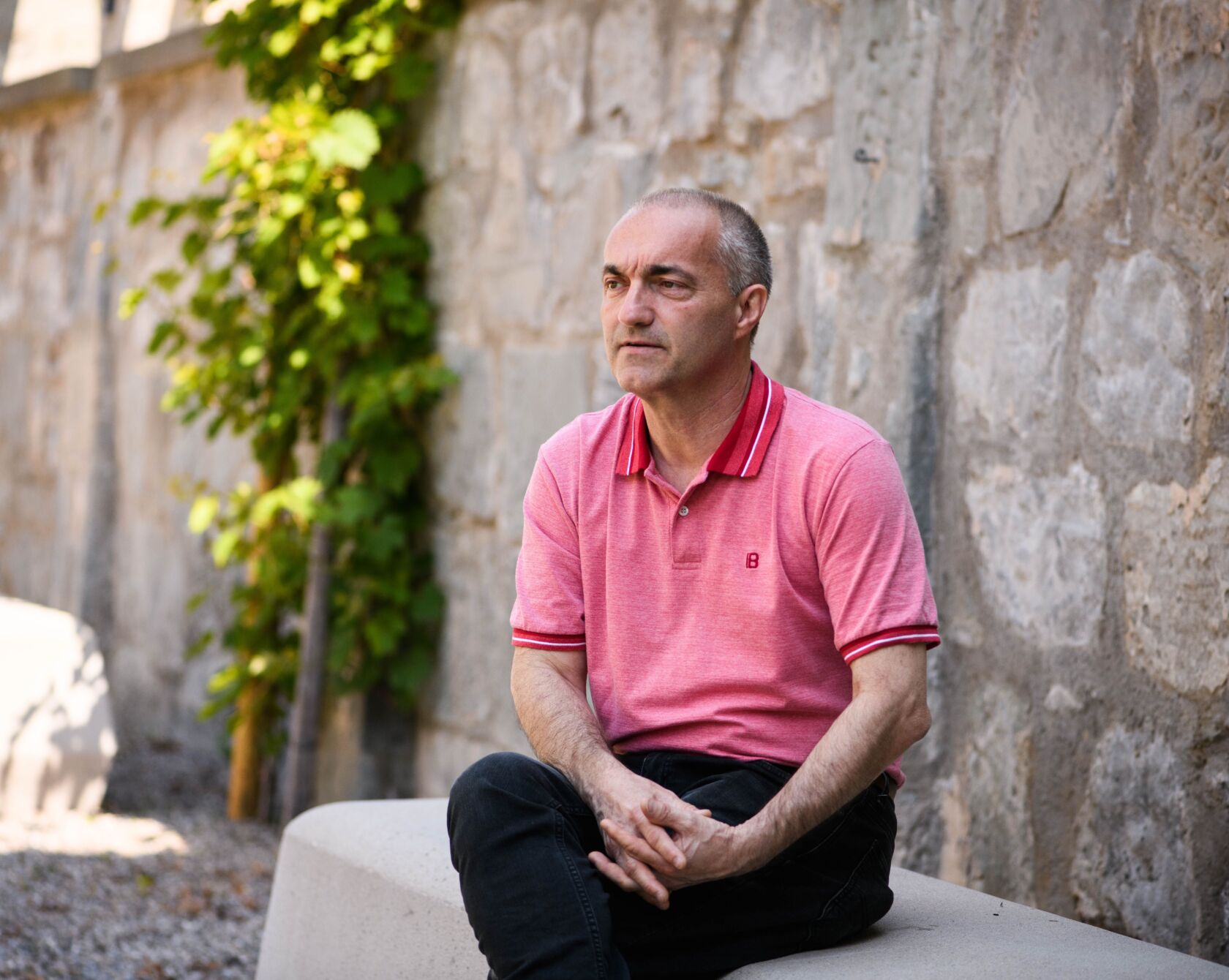Markus Vorburger (58) has a rare, genetic disease called neurofibromatosis type 2 (NF2-associated schwannomatosis). This impairs his hearing and sense of balance. Thanks to the right therapy and support from the USZ and his employer, he is coping well with everyday life.
“One morning I was so dizzy that I couldn’t get up. That was almost 25 years ago. I had a follow-up MRI because my father has a hereditary disease called neurofibromatosis type 2, which affected his hearing and balance. He became hard of hearing at the age of 60. The disease typically causes benign tumors to form in the brain, eyes, hearing organs or in the area of the spinal column or spinal cord. Nothing was seen in my MRI at the time. So I assumed that I would not be affected. A few years later, on the advice of my father’s neurologist, I had another follow-up MRI. It turned out that I am affected by neurofibromatosis type 2.
After a sudden hearing loss ten years later, my ENT specialist referred me to the USZ. I’m glad I was referred to the USZ back then: I feel that I am in good hands here, I always get answers to my many questions and a whole team of specialists look after me: doctors, nurses, physiotherapists from the specialist areas of the neurology and ORL clinics.
Restricted in everyday life
My hearing has deteriorated considerably in recent years, and I have a tumor seven to eight millimetres in diameter in each of my ear canals. Unfortunately, the tumors grew faster than initially suspected. My sense of balance is also affected: At the moment, I constantly feel like I’m going to tip over. In my work as a janitor, there are tasks that I can’t do depending on the day. Sitting on the big lawnmower, handling the vibrating leaf blower – all things that are poison for me. Sometimes I feel so dizzy that I can’t work. If I can get up in the morning without feeling dizzy, it’s a good day for me. The illness is already having a massive impact on my well-being. I have been wearing a hearing aid since 2018. It was then that I realized how bad my hearing actually was. I’m glad the deterioration is gradual for me, so at least I can get used to it. And I can slowly settle into the situation and adapt my life with the family accordingly.
